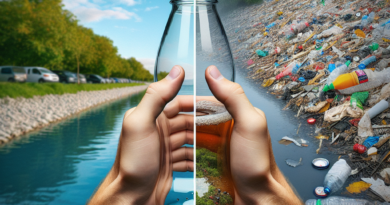Why are plastic caps attached to bottles?
The European Regulation on Plastic Bottles: Tackled Caps to Protect the Environment
It has been about a year since Europe definitively approved the new regulations concerning plastic bottles and their caps.
Now, all caps must be permanently attached to the bottles.
This innovation has been met with mixed reactions.
While the ultimate goal is to protect the environment and reduce the dispersion of microplastics, it has also posed some challenges for consumers.
Why Are Plastic Caps Attached to Bottles?
The decision to attach plastic caps to their bottles aims to prevent them from getting lost and not being recycled.
This strategy was chosen as part of Europe’s ongoing strategic plan to reduce the use of plastic in packaging, particularly in single-use items.
For several years, companies have been gradually introducing this new cap design.
However, starting from July 3, 2024, all plastic bottles will be required to have attached caps.
This is a new regulation imposed by the European Union to limit plastic dispersion in the environment and facilitate material recycling.
EU Directive and the Impact on Plastic Industry
Since June 5, 2019, the European Parliament and Council have passed a directive stating that products with plastic caps must be sold with the caps attached to the containers.
This aligns with the long-anticipated path outlined in the UN 2030 Agenda for the Circular Economy, which includes a ban on single-use products.
While this directive is crucial for environmental protection, the decision to attach caps to plastic bottles has sparked debates.
Consumers have raised concerns about the inconvenience of drinking with the cap attached, while the plastic industry faces challenges regarding waste management and recycling processes.
The Plastic Industry and Consumer Adaptation
Addressing consumer concerns, innovative solutions have been devised, such as caps that can be folded alongside the bottle to facilitate drinking.
However, the plastic industry, which sustains thousands of jobs and generates significant revenue, may face disruptions due to the shift towards reuse, reduction of single-use items, and increased use of recycled plastics.
Despite the complexities, the overarching goal remains the fight against plastic waste and the promotion of recycling to prevent environmental pollution.
This initiative resonates with the global trend of attached bottle caps and aims to streamline waste management processes.
Whether driven by the campaign against plastic waste or technological limitations in waste sorting facilities, the decision to attach caps to bottles underscores the commitment to sustainable practices.
Ultimately, by July 3, 2024, all plastic bottles will feature attached caps, marking a significant step towards a greener and more sustainable future.




